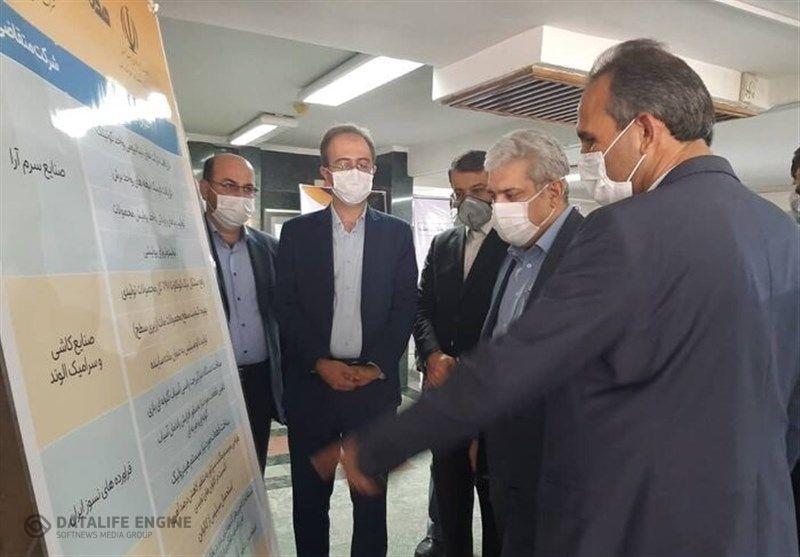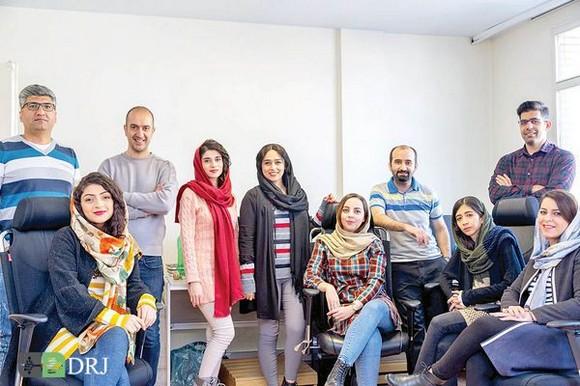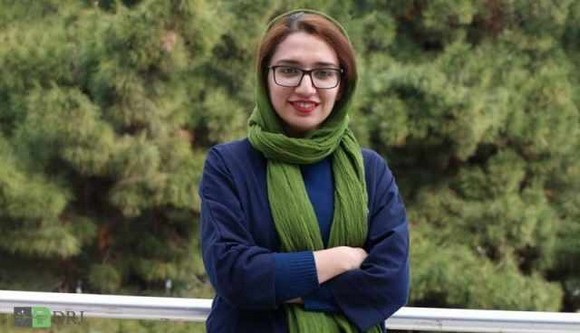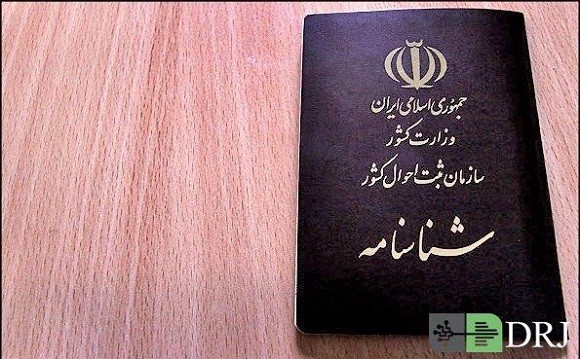Muhammad al-Ghazali
Muhammad al-Ghazali remains one of the most celebrated scholars in the history of Islamic thought . His exceptional life and works continue to be indispensable in the study of jurisprudence , theology , philosophy and mysticism . The tens of books that he left behind were the result of an inquisitive mind that began the quest for knowledge at a very early stage . In the introduction to his autobiographical work Deliverance from Error ( Al-Munqidh min al-Dalal , p . 81 ) , al-Ghazali said:
“The thirst for grasping the real meaning of things was indeed my habit and want from my early years and in the prime of my life . It was an instinctive , natural disposition placed in my makeup by Allah Most High , not something due to my own choosing and contriving . As a result , the fetters of servile conformism fell away from me , and inherited beliefs lost their hold on me , when I was quite young . ”
Al-Ghazali’s Life:
Al-Ghazali’s full name is Muhammad Ibn Muhammad Ibn Muhammad Ibn Ahmad al-Tusi . He was born in 450/1058 in Tus , Khurasan near Meshhad in present-day Iran . He bore the title of respect Hujjat al-Islam ( Proof of Islam ) for the role he played in defending Islam against the trends of thought that existed at the time . His father was a wool spinner ( ghazzal ) and thus , relative to this profession , al-Ghazali acquired this name . ( al-Subki , Tabaqat al-Shafi`iyyah al-Kubra , vol . VI , pp . 191-193 ) Although he was born in Tus , a Persian , non-Arabic land , Al-Ghazali wrote the overwhelming majority of his works in Arabic , the lingua franca of his world .
Before his death , al-Ghazali’s father entrusted him and his brother Ahmad to a Sufi friend . He asked him to spend whatever little money he left behind , to teach them reading and writing . When the money was finished , the Sufi asked them to join a school so that they might subsist . According to Al-Subki ( Tabaqat , vol . VI , p . 195 ) , schools used to provide room , board and stipend .
Al-Ghazali began studying at Tus where his teacher was Ahmad Al- Radhakani . His next station was Jurjan where he wrote Al-Ta`liqah from the lectures of Abu Al-Qasim Al-Isma`ili Al-Jurjani . He returned to Tus for three years only to leave afterwards for Nishapur , where he joined the Nizamiyyah school and studied under Imam Al-Haramayn Al-Juwaini for eight years until the death of his teacher in 478 AH / 1085 CE . ( Al-Subki , Tabaqat , vol . VI , pp . 195-196 ) During this period al-Ghazali excelled in all the Islamic sciences with the exception of the science of the Hadith; he confessed this in the last paragraph of his work Qanun al-Ta’wil ( The Law of Metaphorical Exegesis ) . This may have been the reason for the presence of some unsound traditions in his works , such as the famous Ihya’ `Ulum al-Din ( The Revival of the Islamic Sciences ) .
After the death of Al-Juwaini , al-Ghazali went to the Camp ( Al-Mu`askar ) of vizier Nizam Al-Mulk who founded the Nizamiyyah schools . The Camp was reputed as a meeting place for scholars who debated in the Islamic sciences . al-Ghazali won the respect of other scholars and was assigned by Nizam Al-Mulk to be the teacher at the Nizamiyyah of Baghdad . He lectured there between 484 AH / 1091 CE and 488 AH / 1095 CE . ( Al-Subki , Tabaqat , vol . VI , pp . 196-197 ) This position won him prestige , wealth and respect that even princes , kings and viziers could not match . ( Al-Zubaydi , Ithaf , vol . I , p . 7 )
During this period , al-Ghazali studied philosophy on his own and wrote Maqasid al-Falasifah ( The Aims of the Philosophers ) and appeared as if he was one of them . His critique of philosophy followed , in a book he called Tahafut Al-Falasifah ( The Incoherence of the Philosophers ) . Almost all scholars tend to generalize and say that al-Ghazali gave a coup de grace to philosophy in this book . Indeed , few notice that he was critical of Greek metaphysics and its spread in an “Islamic” dress at the hands of reputed Muslim philosophers such as Ibn Sina and Al-Farabi . A detailed discussion of al-Ghazali’s relationship with philosophy and science will follow .
The end of al-Ghazali’s career at the Nizamiyyah of Baghdad was unexpected . The circumstances surrounding this event became known as the “Spiritual Crisis” of al-Ghazali . He discussed the reason that prompted him to quit his position in Deliverance from Error . After discussing the methodologies of the Muslim theologians ( Al-Mutakallimun ) , the philosophers and the esoterics ( Al-Batiniyyah ) , he chose the Sufi path as the way to acquire indubitable knowledge . He noted though that this method has prerequisites; one should abandon all worldly attachments . Al-Ghazali thought that , in order to implement this , he should “shun fame , money and to run away from obstacles . ” ( Al-Munqidh , p . 134 ) He made it clear that any deed that was not for the sake of Allah was an obstacle . Upon scrutinizing his activities , he decided that his motivation for teaching was not for the sake of Allah . ( Al-Munqidh , p . 134 ) Of this al-Ghazali said:
“For nearly six months beginning with Rajab , 488 AH [July , 1095 CE] , I was continuously tossed about between the attractions of worldly desires and the impulses towards eternal life . In that month the matter ceased to be one of choice and became one of compulsion . ( Allah ) caused my tongue to dry up so that I was prevented from lecturing . One particular day I would make an effort to lecture in order to gratify the hearts of my following , but my tongue would not utter a single word nor could I accomplish anything at all . ” ( Hayman and Walsh , eds . , Philosophy in the Middle Ages , p . 277 )
Al-Ghazali’s health deteriorated and the physicians gave up any hope for they realized that the source of his problem was not physical . He “sought refuge with Allah who made it easy for his heart to turn away from position and wealth , from children and friends . ” ( Hayman and Walsh , p . 278 ) He distributed his wealth and departed from Baghdad to begin a spiritual journey that lasted for about eleven years . He went to Damascus , Jerusalem , Hebron , Madinah , Makkah and back to Baghdad where he stopped briefly . This part of the journey lasted until Jumada Al-Akhirah , 490 AH / June , 1097 CE . He continued to Tus to spend the next nine years in seclusion ( Khalwa ) . He ended his seclusion to teach for a short period at the Nizamiyyah of Nishapur in 499 AH / 1106 CE . From there he returned to Tus where he remained until his death in Jumada Al-Akhirah , 505 AH / December , 1111 CE . ( Abu Sway , M . , al-Ghazali: A Study in Islamic Epistemology , p . 24 )
Yet , before delving into al-Ghazali’s ideas , it is important to remember that he lived in what might be described as a post-golden age context . The production of the exact sciences faded away , the Islamic state had grown into a massive caliphate that faced disintegration as the provincial governors gained power . Just before al-Ghazali was born , the institution of the Sultan was introduced or rather forced on Baghdad . The year 450 AH marked the first time a split in power took place between the Sultan , who was the actual ruler , and the Caliph whose role was reduced to dignitary functions . ( Ibn Kathir , Al-Bidayah wa al-Nihayah , vol . XII , p . 66 )
It was a classical case of a wealthy and powerful civilization that lost track of its sense of direction and lost sight of its roots , its source of power . The indulgence in material life had led many celebrities to abandon public life and to live in seclusion . It was a search for a meaning of life in asceticism . Sufism thrived before al-Ghazali was born and he ultimately subscribed to the mystics’ path .
Al-Ghazali’s Thought:
Al-Ghazali was an encyclopedic and prolific scholar . He was trained as a jurist in the Shafi`i school which is traditionally Ash`arite in its expression of Islamic faith . He contributed many books to these fields . In addition , he wrote extensively about Islamic mysticism . He wrote about politics and the sects of the time , and he wrote poetry . Yet , in what follows , the discussion will be restricted to his position on science .
The early works of al-Ghazali were in the area of jurisprudence . Nevertheless , in Al-Mankhul fi `Ilm al-Usul , a book on usul al-fiqh . He devoted a chapter to a discussion of the nature of the sciences ( al-kalam fi haqa’iq al-`ulum ) . It should be noted that al-Ghazali’s use of the word “sciences” is general and restricted to the natural or physical sciences; it covers all subjects of knowledge including those of the Shari`ah . This chapter included important insights reflecting his position regarding science . One of these insights was regarding the definition of `ilm [science] . He said: “science cannot be defined” ( inna al-`ilma la hadda lah ) . He explained his statement by saying that it was possible to know science and that “our inability to define ( science ) does not indicate our ignorance about the same science” . ( Al-Mankhul , p . 42 )
Al-Ghazali divided the sciences or knowledge into eternal and accidental . Eternal knowledge belongs to God alone . He divided accidental knowledge into immediate ( hajmiyy ) and theoretical ( nazariyy ) . The first is the kind of knowledge that one has to know with the beginning of reason , such as the existence of the self . On the other hand , theoretical knowledge is the result of sound thinking ( al-nazar al-sahih ) . Related to this is al-Ghazali’s definition of reason . He said that it is “the qualification which enables the qualified [person] to perceive knowledge and to think about the cognizable . ” ( Al-Mankhul , pp . 44-45 )
While al-Ghazali classified the senses into different categories in terms of their function in acquiring knowledge , he maintained that there were no differences between the sciences once knowledge is acquired , regardless of how difficult the subject of the science is . This view of al-Ghazali regarding the equality of the sciences , once they are achieved , is consistent with his position regarding his interchangeable use of the terms “science” and “knowledge” . ( Al-Mankhul , p . 48 )
The first period of public teaching at the Nizamiyyah of Baghdad ( 478-488 AH/1085-1095 CE ) was the time when al-Ghazali encountered philosophy . In Al-Munqidh min al-Dalal , a biographic work that he wrote towards the end of his life , he sketched his quest for knowledge . Al-Ghazali reduced the list of the seekers for knowledge to four groups: the dialectical theologians ( Al-Mutakallimun ) , the esoterics ( al-Batiniyyah ) , the philosophers , and the Sufis ( Al-Munqidh , p . 89 ) . His discussion of philosophy is the most relevant to his position on science .
Al-Ghazali stated that in his quest for true knowledge he started studying philosophy after he was done with `ilm al-kalam , which did not provide “certain knowledge” ( `ilm al-yaqin ) he sought . In his introduction to the section on philosophy he outlined his approach to this new field . He wanted to pursue philosophy to a level higher than that of the most knowledgeable in the field . Only then , he argued , could one know the intricate depths of the science , as he referred to philosophy . ( Al-Munqidh , p . 94 )
Al-Ghazali was aware that he could not rely on secondary sources , such as those of the Mutakallimun , in order to study philosophy . For him , their books included fragmented philosophical words that were complex and contradictory to one another . Instead , he decided to read books of philosophy directly without the assistance of a teacher . Although he was teaching three hundred students at the Nizamiyyah of Baghdad and writing on the Islamic revealed sciences at the same time , in his spare time he was able to master philosophy in less than two years . He spent almost another year reflecting on it . ( Freedom and Fulfillment , p . 70 ) al-Ghazali wanted the readers , through such a detailed account of his effort , to have confidence that he had a thorough grasp of philosophy and that his conclusions are trustworthy .
As a result of his study he wrote two books: Maqasid al-Falasifah ( The Aims of the Philosophers ) and Tahafut al-Falasifah ( The Incoherence of the Philosophers ) . It was al-Ghazali’s intention to write a book that would encompass the thought of the philosophers without criticizing or adding anything to it . Of this objective , he said:
“I thought that I should introduce , prior to the Tahafut , a concise account that will include the story of their aims ( maqasid ) which will be derived from their logical , natural and metaphysical sciences , without distinguishing between what is right and what is wrong , without additions and along with that they believed what they believed as their proofs . ” ( Maqasid , p . 31 )
This book , which is a pioneer work in its attempt to deliberately present an objective account of the thought of adversaries , was followed by the Tahafut , which included his critique of the contents of the first one . It was this latter work ( i . e . Tahafut al-Falasifah ) that prompted Ibn Rushd to write Tahafut al-Tahafut ( The Incoherence of the Incoherence ) which constituted a systematic rebuttal of al-Ghazali’s critique of this mélange of Greco-Islamic philosophy .
In Maqasid al-Falasifah , al-Ghazali divided the sciences of the philosophers into four major categories: mathematical ( al-riyadiyyat ) , logical ( al-mantiqiyyat ) , natural ( al-tabi`iyyat ) and metaphysical ( al-ilahiyyat ) . ( Maqasid , p . 31 ) He listed politics , economy and ethics as subdivisions under metaphysics . In al-Munqidh min al-Dalal , he listed politics and ethics as major sections along with the first four . ( al-Munqidh , p . 100 ) Only mathematics and logic will be discussed here .
Regarding mathematics , al-Ghazali thought that it dealt with geometry and arithmetic . Neither of these subjects contradicted reason . As a result , he did not think that he ought to include a detailed account of mathematics in his book . ( Maqasid , pp . 31-32 )
Knowledge is divided , in the second section of the book of knowledge of Ihya’ `Ulum al-Din , into `ulum shar`iyyah ( sciences of the Shari`ah ) and ghayr-shar`iyyah ( non-Shari`ah sciences ) . To the latter belongs mathematics and medicine , which al-Ghazali described as praiseworthy sciences . The latter sciences are considered fard kifayah ( i . e . there should be enough Muslims who are experts in the concerned field to the degree that they can fulfill the needs of the Islamic society ) . Nevertheless , al-Ghazali criticized unnecessary studies in mathematics that do not have practical applications . ( Ihya’ , pp . 16-17 )
The fact that al-Ghazali categorized mathematics and medicine as fard kifayah is a positive position . This means that the society at large would be committing a sin if they neglect any of these sciences to the degree the shortage would have negative impact on the society . In fact , he blamed the students of jurisprudence for their indulgence in minute details of the Shari`ah . The context indicates that they better study medicine instead of specializing in issues in jurisprudence that might never prove to be of any benefit . ( Ihya’ , vol . I , p . 21 ) Despite this positive stance , al-Ghazali did not remain consistent in his position .
Al-Ghazali had fears that though geometry and arithmetic are permissible , they might lead a person to blameworthy sciences . ( Ihya’ , vol . I , p . 22 ) He did not discuss the reasons that led him to take such a position . It should be noted that this remark is atypical for al-Ghazali and does not reflect his general position regarding arithmetic , geometry and the exact sciences . The context itself might provide some insight as to why al-Ghazali was cautious in dealing with mathematics and the exact sciences . During his time , there were no compartmentalized studies , and every student learned all branches of knowledge . Al-Ghazali was afraid that a student might be deceived by the accuracy of mathematics and then generalize and consider all the subjects included in philosophy , including metaphysics , to be as accurate .
In al-Mustasfa min `Ilm al-Usul , al-Ghazali stated that arithmetic and geometry are pure rational sciences that are not recommended for studying . They fluctuate between false , yet plausible guesses , and true knowledge that yields no practical applications . ( Al-Mustasfa , p . 3 ) This shift from his early position that studying mathematics is fard `ayn might be attributed to his acceptance of the Sufi path . Al-Mustasfa was written towards the end of al-Ghazali’s life when he was deeply absorbed by tasawwuf .
Al-Ghazali did not see any practical application for the study of physics , and thus declared it useless . He knew that physics is concerned with substances and their properties , yet he stated that some of the input of the philosophers contradicted the Shari`ah . ( The Book of knowledge , p . 54 ) Thus practical application , or rather the lack of it , caused al-Ghazali to reject a particular science as the above example , or at least criticize it ( Ihya’ , pp . 16-17 ) . This position should be seen in the context of the civilizational development of the 5th century AH/ 11th century CE .
Regarding logic , he defined it as “the law ( qanun ) that distinguishes a sound premise and analogy from a false one , which leads to the discernment of true knowledge . ” ( Maqasid , p . 36 ) In reviewing the subjects of logic , which he believed to be neutral in its relationship with the Shari`ah , ( al-Munqidh , p . 103 ) al-Ghazali stated that induction ( istiqra’ ) could be correct only if all parts were covered . If only one part could be different , then induction in this case could not yield true knowledge .
Al-Ghazali criticized the philosophers on twenty accounts in the Tahafut . Of relevance to the discussion here is his position on issue number seventeen , causality . Long before David Hume , al-Ghazali said that , in his opinion , “the conjunction ( al-‘qtiran ) between what is conceived by way of habit ( fi al`adah ) as cause and effect is not necessary ( laysa daruriyyan ) . ” He provided a list of pairs that were usually thought of as cause and effect by the philosophers ( e . g . fire and burning , light and sunrise , diarrhea and laxatives ) . For him , the conjunction between them was a result of the sequence in which Allah created them , not because this conjunction was necessary in itself . Moreover , he thought that it was possible for one of these pairs to exist without the other . He did not see any contradiction since these pairs are the phenomena of nature and nature as such , according to the philosophers own admission , does not belong to the realm of necessity but that of possibility , which may or may not exist . ( Tahafut , p . 239 )
Al-Ghazali criticized the philosophers’ proof of causality because it was limited to observation ( mushahadah ) which depends on the senses , a source of knowledge that he could not accept on its own merit . Thus his position regarding causality is consistent with his theory of knowledge . Using the example of fire and burning , he said that “observation could only prove that burning took place when there was fire , and not by the fire . ” He held that inert and lifeless objects such as fire are incapable of action and thus cannot be the agent ( al-fa`il ) that causes burning . To prove his point , al-Ghazali used a proof , which is neo-platonic in its tone , from the arguments of the philosophers . They held that accidents ( a`rad ) and incidents ( hawadith ) emanate at the time of contact between “bodies” , from the provider of forms ( wahib al-suwar ) whom they thought to be an angel . Accordingly , one cannot claim that fire is the agent of burning . In addition , he argued that the agent “creates” burning with his will ( bi’iradatihi ) . al-Ghazali reduced the problem of causality to that of “will” which makes it rationally possible for the agent , whom he held to be Allah , not to create burning even though there is contact . ( Tahafut , pp . 242-243 )
Al-Ghazali presented this theory of causality in order to allow room for the existence of miracles ( mu`jizat ) that were associated with the prophets , without resorting to allegorical interpretations as the philosophers did . One of the miracles that he chose as an example was that of Prophet Ibrahim . The story was that his people attempted to burn him for breaking their idols by throwing him into fire but no burning took place . In the Qur’an ( 21:69 ) it was Allah’s will that the fire would not harm Ibrahim . al-Ghazali maintained that Allah was the agent ( fa`il ) of every action , either directly or indirectly ( i . e . by the angels ) . ( Tahafut , pp . 243-247 )
Al-Ghazali knew that he could not exhaust all the sciences in his writings . He had an insight that there are more sciences within reach of human beings . He said: “It appeared to me through clear insight and beyond doubt , that man is capable of acquiring several sciences that are still latent and not existent . ” ( Jawahir al-Qur’an , p . 28 )
Al-Ghazali’s Impact on Islamic Thought and Beyond:
Al-Ghazali’s status in Islamic thought ranges from being the “Proof of Islam” and renewer ( mujadded ) of the fifth century AH , to being declared a non-believer by some of our contemporary “scholars” ( Dimashqiyyah , Abu Hamid al-Ghazali wal-Tasawwuf ) . The unfortunate gap between the two positions reflects the war that ensued between the Sufis and the Salafis , a war that is almost as old as Islam itself . Al-Ghazali left behind a great number of books and treatises . According to Abdurrahman Badawi ( Mu’allafat al-Ghazali ) seventy-three are definitely his . One of the most celebrated books is the Ihya’ `Ulum Al-Din ( Revival of Islamic Sciences ) . al-Ghazali believed that Muslims became entrapped within the minute details of fiqh . This included scholars as well because to a certain extent they had lost sight of the original message of Islam . It is in this context that the Ihya’ poses a challenge to scholars , despite its own flaws that mostly arise from al-Ghazali’s lacked of sufficient knowledge in the science of Hadith , as he admitted in Qanun al-Ta’wil . Al-Subki , an early historian of the Shafi`i school of jurisprudence , listed in Tabaqat al-Shafi`iyyah al-Kubra more than nine hundred weak or forged traditions that he detected in the Ihya’ .
Al-Ghazali was the scholar per excellence in the Islamic world . He had literally hundreds of scholars attending his lectures at the Nizamiyyah school of Baghdad . His audience included scholars from other schools of jurisprudence . The list includes Judge Abu Bakr Ibn Al-`Arabi who was Maliki , Al-Khattabi and Abu Al-Wafa’ Ibn `Aqil who were Hanbalites .
Reflecting the influence of al-Ghazali on the Latin world , Manuel Alonso listed forty-four medieval philosophers and theologians who made reference to al-Ghazali . This included Thomas Aquinas who referred to Maqasid Al-Falasifah thirty-one times ( Al-Andalus , XXIII ) . Needless to say , that al-Ghazali is still celebrated in many academic institutions in the West , with numerous orientalists writing about him and translating his books . `Uthman Ka`ak has related that he found a translated copy of Al-Munqidh min al-Dalal in Descartes’ library in Paris with Descartes’ comments in the margin . The numerous similarities between Al-Munqidh and Discourse on Method support Ka`ak’s observations . Ka`ak passed away and I have attempted to locate the book that he mentioned by corresponding with several libraries in France that contain some of Descartes’ book collection , yet to no avail .
Conclusion:
Al-Ghazali rejected conformism or uncritical acceptance of any set of thought including that of the Shari’ah . He sketched his quest for peremptory knowledge ( i . e . `ilm al-yaqin ) and the ordeal he had to go through in order to achieve it . He reviewed the position of many Islamic groups and others who claimed to be the gate to the knowledge that he sought . His position regarding the sciences slightly differed from one to the other , and from time to time . A science , to be sought , has to be in conformity with the Shari`ah , and has to have practical applications which should prove to be beneficial to the society . It is apparent that by subscribing to the Sufi path , al-Ghazali detached himself from the material world including the exact sciences , which lost whatever status they held in his eyes at one point . Al-Ghazali had a great spirit that roamed and wandered in search of truth . Though originally his search was not in the area of science per se , inculcating such a spirit might be a step in the right direction to scientific inquiry . I began this entry with a quotation from al-Ghazali and I would like to conclude with one that reflects this spirit and leave it open ended , he said:
“In the bloom of my life , from the time I reached puberty before I was twenty until now , when I am over fifty , I have constantly been diving daringly into the depth of this profound sea and wading into its deep water like a bold man , not like a cautious coward . I would penetrate far into every mazy difficulty . I would scrutinize …!” ( Freedom and Fulfillment , p . 62 )
Mustafa Abu Sway Al-Quds University October , 2001
Bibliography ( Partial List )
Major works by al-Ghazali arranged in chronological order:
----- , Al-Mankhul min Ta`liqat al-Usul , ed . , Muhammad Hasan Hitu ( Damascus: Dar Al-Fikr , 1970 )
----- , Al-Wajiz ( Al-Ghuriyya: Matba`at Hush , 1318 AH [1901 CE] )
----- , Al-Wasit , ed . , Ali Muhyi al-Din al-Qarah Daghi , 2 vols . ( Cairo: Dar al-Nasr li al-Tiba`ah al-Islamiyyah , 1984 )
----- , Fatawa , ed . , Mustafa Abu Sway ( Kuala Lumpur: ISTAC , 1996 )
----- , Maqasid al-Falasifah , ed . , Suleiman Dunya ( Cairo: Dar al-Ma`arif bi-Misr , 1961 )
----- , Tahafut al-Falasifah , ed . , Suleiman Dunya , 7th ed . ( Cairo: Dar al-Ma`arif bi- Misr , 1961 )
----- , Mi`yar al-`Ilm fi al-Mantiq , ed . , Ahmad Shams al-Din ( Beirut: Dar al-Kutub al-`Ilmiyyah , 1990 )
----- , Mihak al-Nazar fi al-Mantiq , ed . , Muhammad Badr Ad-Din al-Na`sani ( Beirut: Dar al-Nahdah al-Hadithah , 1966 )
----- , Mizan al-`Amal , ed . , Suleiman Dunya ( Cairo: Dar al-Ma`arif bi-Misr , 1964 )
----- , Al-Iqtisad fi Al-I`tiqad , ed . , Muhammad Mustafa Abu al-`Ula ( Cairo: Maktabat al-Jindi , 1972 )
----- , Ihya’ `Ulum al-Din , 4 Vols . ( Beirut: Dar al-Ma`rifah , n . d . )
----- , Al-Maqsad al-Asna Sharh Asma’ Allah al-Husna , ed . , Muhammad Mustafa Abu al-`Ula ( Cairo: Maktabat al-Jindi , 1968 )
----- , Bidayat al-Hidayah , ed . Muhammad al-Hajjar ( Damascus: Dar al-Sabuni , 1986 )
----- , Jawahir al-Qur’an , ed . , Muhammad Mustafa Abu al-`Ula ( Cairo: Maktabat al-Jindi , 1964 )
----- , “Al-Madnun bihi `ala Ghayri Ahlih” , Majmu`at Rasa’il al-Imam al-Ghazali , vol . IV ( Beirut: Dar al-Kutub al-`Ilmiyyah , 1986 )
----- , “Al-Qistas al-Mustaqim” Majmu`at Rasa’il al-Imam al-Ghazali , vol . III ( Beirut: Dar al-Kutub al-`Ilmiyyah , 1986 )
----- , “Faisal al-Tafriqah bayn al-Islam wa al-Zandaqah” Majmu`at Rasa’il al-Imam al-Ghazali , vol . III ( Beirut: Dar al-Kutub al-`Ilmiyyah , 1986 )
----- , Qanun al-Ta’wil . Published with al-Ghazali’s Ma`arij al-Quds , ed . , Muhammad Mustafa Abu al-`Ula ( Cairo: Maktabat al-Jindi , 1968 )
------“Ayyuha al-Walad” Majmu`at Rasa’il al-Imam al-Ghazali , vol . III ( Beirut: Dar al-Kutub al-`Ilmiyyah , 1986 )
----- , Al-Tibr al-Masbuk fi Nsiyat al-Muluk ( Cairo: Maktabat al-Kulliyyah al-Azhariyyah )
----- , “Al-Risalah al-Ladunniyyah” , Majmu`at Rasa’il al-Imam al-Ghazali , vol . III ( Beirut: Dar al-Kutub al-`Ilmiyyah , 1986 )
----- , Mishkat al-Anwar , ed . , `Abd Al-`Aziz `Izz al-Din al-Siyarawan ( Beirut: `Alam al-Kutub , 1986 )
----- , Al-Kashf wa al-Tabyin fi Ghurur al-Khalq Ajma`in ( Cairo: Matba`at Mustafa Muhammad , n . d . ) Published with `Abd al-Wahhab al-Sha`rani’s Tanbih al-Mughtarrin .
----- , Al-Munqidh min al-Dalal , eds . , Jamil Saliba and Kamil `Aiyyad , 10th ed . ( Beirut: Dar al-Andalus , 1981 )
----- , Al-Mustasfa min `Ilm al-Usul , 2 vols . ( Bulaq: Al-Matba’ah al-Amiriyyah , 1322 A . H . )
----- , Al-Imla’ fi Mushkilat al-Ihya’ , Appendix , Iyha’ `Ulum al-Din ( Beirut: Dar al-Ma`rifah , n . d . )
----- , Al-Durrah al-Fakhirah fi Kashf `Ulum al-Akhirah . Published with al-Ghazali’s Sir al-`Alamin , ed . , Muhammad Mustafa Abu al-`Ula ( Cairo: Maktabat al-Jindi , 1968 )
----- , Sir al-`Alamin wa Kashf ma fi al-Daryn , ed . , Muhammad Mustafa Abu al-`Ula ( Cairo: Maktabat al-Jindi , 1968 )
----- , Iljam al-`Awam `an `Ilm al-Kalam , ed . , Muhammad al-Musta`sim Billah al-Baghdadi ( Beirut: Dar al-Kitab al-`Arabi , 1985 )
----- , Minhaj al-`Abidin , ed . , Muhammad Mustafa Abu al-`Ula ( Cairo: Maktabat al-Jindi , 1968 )
----- , Ma`arij al-Quds fi Ma`rifat al-Nafs ( Cairo: Maktabat al-Jindi , 1968 )
Translated Works of al-Ghazali
1 . al-Ghazali , The Book of Knowledge ( Kitab al-`Ilm of Ihya` `Ulum al-Din ) ed . and trans . , Nabih Amin Faris ( Lahore; Sh . Muhammad Ashraf , 1962 )
2 . ----- , On the Duties of Brotherhood . trans . Muhtar Holland ( Woodstock , NewYork: The Overlook Press , 1976 )
3 . ----- , Freedon and Fulfillment ( Al-Munqidh min al-Dalal ) , Published with al-Ghazali’s “Fada’ih al-Batiniyyah wa Fada’il
al-Mustazhiriyyah” . ed . and trans . , Richard J . McCarthy ( Boston: Twayn Publishers , 1980 )
4 . ----- , Inner Dimensions of Islamic Worship ( from Ihya’ `Ulum al-Din ) trans . , Muhtar Holland ( Leicester: The Islamic Foundation , 1983 )
5 . ----- , The Just Balance ( Al-Qistas al-Mustaqim ) , trans . and ed . , D . P . Brewster ( Lahore: Sh . Muhammad Ashraf , 1978 )
6 . ----- , The Niche for Lights ( Mishkat al-Anwar ) , trans . and ed . , W . H . T . Gairdner ( Lahore: Sh . Muhammad Ashraf , 1952 )
7 . ----- , The Ninety-Nine Beautiful Names of God ( Al-Maqsad al-Asna Sharh Asma’ Allah Al-Husna ) trans . , David B . Burrell and Nazih Daher ( Cambridge: The Islamic Texts Society , 1992 )
8 . ----- , The Precious Pearl ( Al-Durrah al-Fakhirah ) , trans . and ed . , Jane Idleman Smith ( Missoula: Scholars Press , 1979 )
9 . ----- , Letters , trans . , Abdul Qayyum ( Lahore: Islamic Publications , 1976 )
Other Works:
Abu Sway , Mustafa , al-Ghazali: A Study in Islamic Epistemology ( Kuala Lumpur , Dewan Bahasa Dan Pustaka , 1996 )
Al-A`sam , `Abd al-Amir , Al-Faylasuf al-Ghazali ( Beirut: Dar al-Andalus , 1981 )
Badawi , `Abdurrahman , Mu’allafat al-Ghazali , 2nd ed . ( Kuwait: Wakalat al-Matbu`at , 1977 )
Laoust , Henri , La Politique De Gazali ( Paris: Librairie Orientaliste Paul Geuthmer , 1970 )
Al-Qaradawi , Yusuf , Al-Imam al-Ghazali bayn Madihih wa Naqidih ( Al-Mansurah: Dar al-Wafa’ , 1990 )
Al-Sharabasi , Ahmad , al-Ghazali ( Beirut: Dar al-Jil , 1975 )
Al-`Uthman , `Abd al-Karim , Al-Dirasat al-Nafsiyyah `ind al-Muslimin wa al-Ghazali bi Wajhin Khas , 2nd ed . ( Cairo: Maktabat Wahbah , 1981 )
Watt , W . Montgomery , Muslim Intellectual: A Study of al-Ghazali ( Edinburgh: The Edinburgh University Press , 1963 )
Zaki , Mubarak , Al-Akhlaq `ind al-Ghazali ( Beirut: Al-Maktabah al-`Asriyyah , n . d . )
Al-Zubaydiyy , Murtada , Ithaf al-Sadah al-Muttaqin bi Sharh Asrar Ihya’ `Ulum al-Din ( Beirut: Dar Ihya’ al-Turath al-`Arabi , n . d . )














































